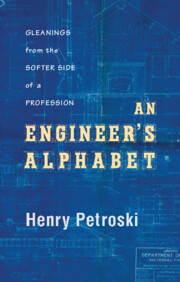G
Published online by Cambridge University Press: 25 October 2011
Summary
gentlemen and engineers. Herbert Hoover told a story that indicated how far the engineering profession had had to come in the early twentieth century toward regaining the recognition and respect it had had during the Victorian era. According to Hoover, while he was on a steamship journey once, he struck up a conversation with a woman sitting in a deck chair next to his. After some time of wide ranging and urbane talk about cultural pursuits, the woman asked Hoover what was his profession. When he responded, “I am an engineer,” the woman recoiled and said, “Why, I took you for a gentleman.”
Another distinguished and dapper engineer, William Barclay Parsons, did not meet with such skepticism. Parsons, who came from a prominent New York City family, held the position of Chief Engineer of the Rapid Transit Commission, which was responsible for the initial development of the New York subway system. In that position he designed and oversaw the construction of the city's first successful subway line, whose initial nine-mile segment – running from City Hall in lower Manhattan to its West 145th Street station – opened for service in 1904. Shortly afterwards, fulfilling a promise that he would move on to other things when the subway was operating, Parsons resigned his position of ten years to devote time to the Panama Canal Commission on which he sat and, shortly thereafter, to become chief engineer of the Cape Cod Canal project.
- Type
- Chapter
- Information
- An Engineer's AlphabetGleanings from the Softer Side of a Profession, pp. 128 - 134Publisher: Cambridge University PressPrint publication year: 2011



